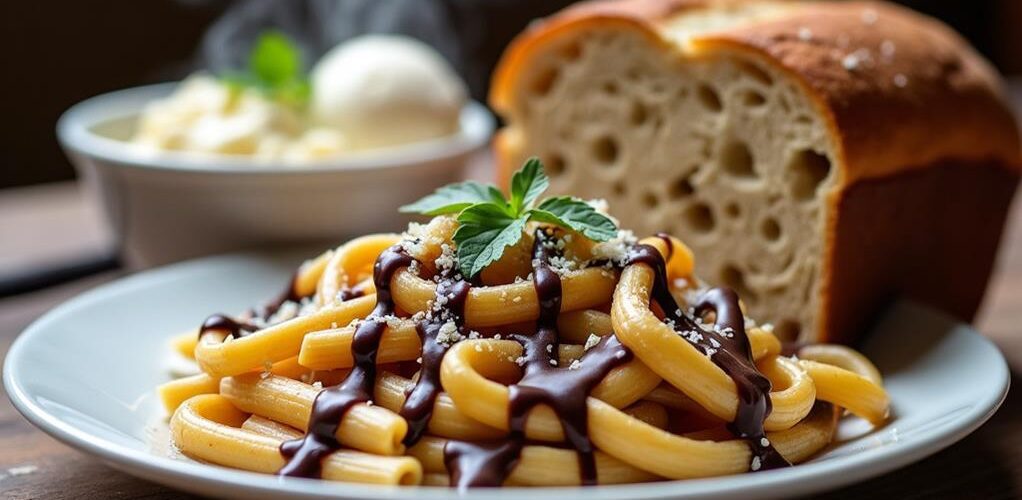
To optimize a ketogenic diet, steer clear of high-carb foods such as grains and starchy vegetables; a single slice of white bread alone contains about 13 grams of carbs. Sugary foods and drinks, including pastries and soft drinks, can disrupt ketosis, with a can of soda having around 39 grams of sugar. Processed snacks like chips also add refined carbs and unhealthy fats. Sweetened dairy products, such as flavored yogurts with over 20 grams of carbs per serving, are another pitfall. Finally, alcoholic beverages, particularly regular beers, can contain up to 20 grams of carbs. Exploring further will provide deeper insights into these dietary choices.
Key Takeaways
- Avoid grains and starchy vegetables like rice, wheat, and potatoes due to their high carb content.
- Stay away from sugary foods and drinks, including candies, pastries, and sodas, which disrupt ketosis.
- Processed snacks such as chips and flavored popcorn are high in carbs and unhealthy fats.
- Flavored yogurts and sweetened dairy products contain added sugars, making them unsuitable for a keto diet.
- Regular beers, sweet wines, and mixed drinks with sugary mixers are high in carbs and should be avoided.
High-Carb Foods
When following a ketogenic diet, it is essential to avoid high-carb foods to maintain the desired state of ketosis. Grains such as rice and wheat are considerable sources of carbohydrates. For instance, one slice of white bread contains approximately 13 grams of carbohydrates, making it incompatible with the low-carb requirements of a ketogenic lifestyle.
Instead, individuals can opt for grains alternatives like cauliflower rice or almond flour to meet dietary needs without compromising ketosis. These alternatives offer the benefit of being lower in carbs while still providing similar textures and flavors to traditional grains.
Starchy vegetables are another category of high-carb foods that should be avoided. Potatoes and corn, commonly consumed staples, are particularly high in carbohydrates. A medium-sized potato contains around 37 grams of carbohydrates, which can considerably disrupt the state of ketosis.
To adhere to a ketogenic diet, non-starchy vegetables like spinach, zucchini, and broccoli are preferable.
Sugary Foods and Drinks
In the domain of ketogenic dieting, sugary foods and drinks pose a significant threat to maintaining ketosis due to their high carbohydrate content.
Candies and pastries, for instance, are laden with sugar, leading to substantial insulin spikes that disrupt ketosis and hinder fat burning. A single can of Coca-Cola contains approximately 39 grams of sugar, making it highly unsuitable for a keto diet because of its high carbohydrate load. Continuous consumption of sugary foods can also lead to negative side effects and adaptation issues during the initial phase of the diet.
Fruit juices, often perceived as healthy, can also derail ketosis. For example, a cup of orange juice contains around 20-25 grams of sugar, complicating blood sugar control. These drinks rank high on the glycemic index, causing rapid spikes in blood glucose levels.
Sweeteners such as honey and syrups are equally problematic. Honey, for instance, has about 17 grams of carbs per tablespoon, which makes it detrimental for those aiming to stay in ketosis.
To mitigate these issues, sugar substitutes with a low glycemic index, such as stevia or erythritol, can be employed. However, vigilance is essential as many processed snacks and desserts contain hidden sugars, which can easily exceed the daily limit of 20-50 grams of net carbs crucial for maintaining ketosis.
Processed Snacks
Processed snacks represent a significant obstacle for those adhering to a ketogenic diet. These foods, including chips, crackers, and even seemingly healthy snack bars, are often high in refined carbohydrates and hidden sugars. For instance, an ounce of chips can contain upwards of 14 grams of carbs, which quickly adds up and can hinder the state of ketosis. Furthermore, flavored popcorn and dried fruits like raisins and apricots are deceivingly high in carbohydrates, with servings containing over 30 grams of net carbs. These processed snacks are not only laden with empty calories but can also disrupt the delicate balance required to maintain ketosis.
| Snack Type | Carbohydrate Content (per serving) |
|---|---|
| Chips | 14 grams |
| Flavored Popcorn | 30 grams |
| Snack Bars | 20 grams |
In addition to their high carbohydrate content, many processed snacks contain unhealthy fats, including trans fats, which can negatively impact overall health. The presence of hidden sugars in snack bars, sometimes amounting to 20 grams of carbs, further complicates adherence to a ketogenic diet. Consequently, avoiding these processed snacks is essential for anyone committed to achieving and maintaining ketosis.
Sweetened Dairy
Sweetened Dairy
While processed snacks pose a serious challenge to maintaining ketosis, sweetened dairy products represent another hidden pitfall. Flavored yogurts, for instance, often contain significant amounts of added sugars, sometimes exceeding 20 grams of carbs per serving. This sugar content can rapidly disrupt ketosis, which relies on a very low carbohydrate intake. Additionally, the initial adjustment phase of the ketogenic diet can be challenging, and consuming high-carb dairy products can exacerbate symptoms like fatigue and dizziness.
Moreover, many low-fat dairy options, such as low-fat chocolate milk, compensate for the reduced fat content by incorporating added sugars. A single cup of low-fat chocolate milk can contain around 30 grams of carbs, making it unsuitable for a keto diet. Similarly, ice creams and frozen yogurts are typically laden with sugars, with some brands reaching up to 30 grams of carbs per serving, thereby hindering ketosis.
Even seemingly healthier choices like flavored almond milk and sweetened creamers often have hidden sugars, contributing up to 8 grams of carbs per cup. To maintain ketosis, it is advisable to opt for unsweetened dairy options.
Plain Greek yogurt, for example, generally contains 6-8 grams of carbs per serving when consumed in moderation. By carefully selecting unsweetened dairy products, one can better adhere to the carbohydrate restrictions essential for a successful keto diet.
Alcoholic Beverages
Maneuvering the complexities of a keto diet requires careful consideration of alcoholic beverages, as many of them are laden with hidden carbohydrates. Regular beers, for example, contain approximately 12-20 grams of carbs per 12 oz serving, making them unsuitable for those aiming to maintain ketosis.
Similarly, sweet wines and dessert wines can have substantial added sugars, often exceeding 10 grams of carbs per serving, posing a challenge for keto dieters. This can be particularly disruptive during the initial adaptation phase when the body is adjusting to ketosis, causing potential setbacks.
Mixed drinks are particularly problematic due to the sugary mixers they often include. Sodas and juices can increase the carbohydrate content of these drinks to about 20-30 grams, thereby disrupting ketosis.
While light beers may appear to be a better option, they still contain around 3-7 grams of carbohydrates per 12 oz, which can accumulate quickly.
For those committed to a keto lifestyle, beer alternatives such as low-carb cocktails made with hard liquors like vodka or whiskey are preferable. These spirits typically have 0 grams of carbs but should be mixed with low-carb options like soda water to stay within the daily carb limits.
Frequently Asked Questions
What Foods Are Not Allowed on Keto?
High carb vegetables like potatoes, and sugary snacks such as chips, are not keto-friendly. Additionally, grains, starches, high-carb fruits, and sugary drinks should be avoided to maintain ketosis effectively.
What Foods Can You Eat Unlimited Amounts of on Keto?
On a keto diet, you can consume unlimited amounts of keto-friendly vegetables, healthy fats, and low carb snacks. These include non-starchy vegetables, olive oil, and eggs, which are ideal for meal prep due to their low carb content.
What Are the Top 10 Keto Foods?
The top 10 keto foods include avocados, fatty fish, nuts and seeds, leafy greens, cheese, eggs, coconut oil, olives, meat, and cauliflower. These options provide keto-friendly snacks and low-carb desserts, promoting ketosis effectively.
Can I Eat a Banana on Keto?
Bananas are not ideal for a keto diet due to their high carbohydrate content. Instead, consider banana alternatives such as keto-friendly fruits like berries, which offer lower carb options while still allowing you to enjoy fruit.
Conclusion
To sum up, adherence to a ketogenic diet necessitates the exclusion of high-carb foods, sugary foods and drinks, processed snacks, sweetened dairy, and alcoholic beverages. These categories of consumables can disrupt ketosis and impede the diet's effectiveness. By avoiding these items, individuals can better maintain the metabolic state required for the ketogenic diet's purported benefits, including enhanced weight loss and improved metabolic health. This dietary strategy is therefore contingent upon careful selection and monitoring of food intake.
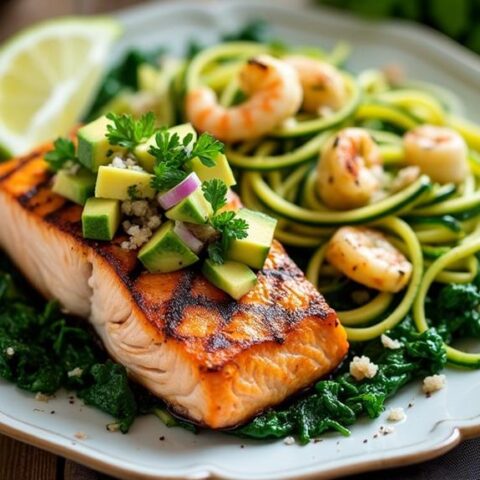
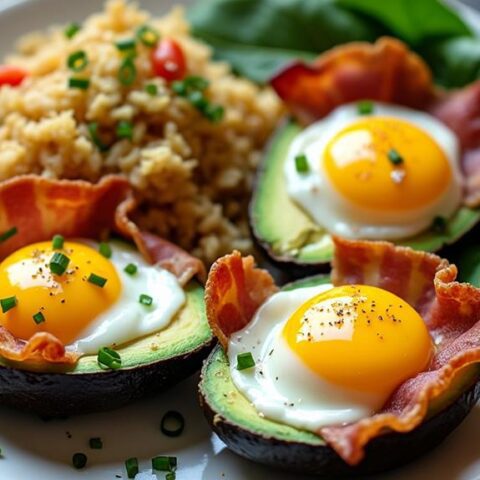

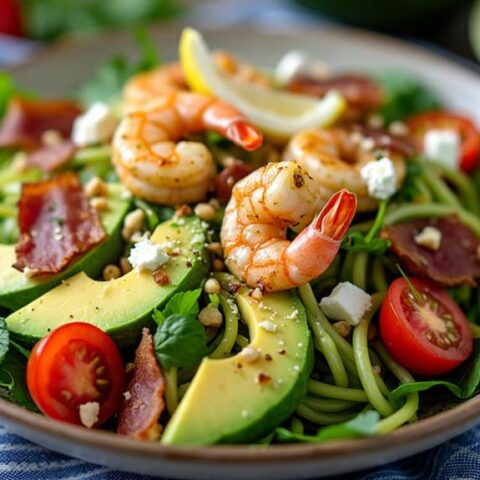
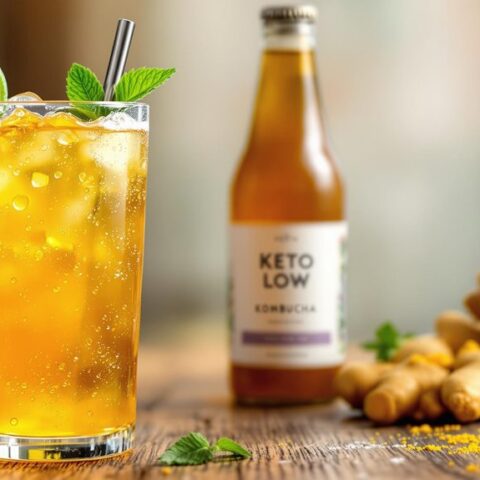




No Comments